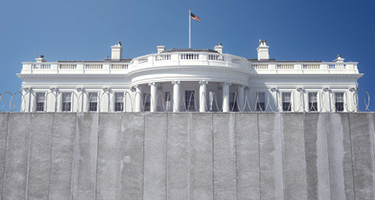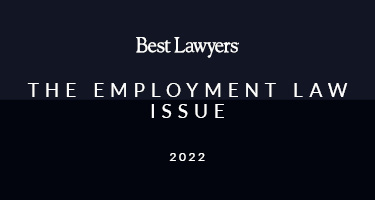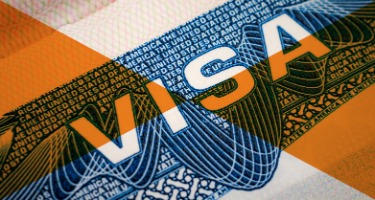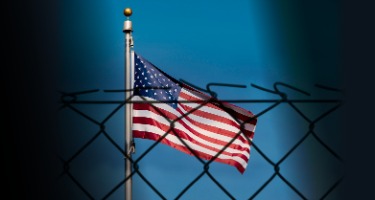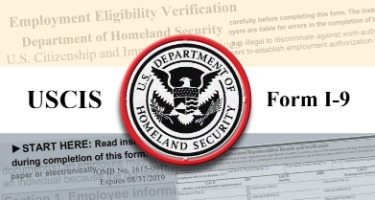The coming of a new year always presents uncertainty for retail employers on the labor and employment front, but particularly so this year with the coming of the Trump administration and Republican majority in Congress. Questions abound about whether and how the Trump administration will roll back the Obama administration’s executive orders and rulemaking in the employment arena, what the National Labor Relations Board (NLRB) will look like and do, and how the Trump administration’s new appointments to the federal bench may shape the interpretation of laws impacting retail employers into the future.
Many are also concerned that the “localization” of employment laws at the state and municipal levels will be expanded in the coming year and further vex national retail employers as Democrats redouble their efforts to impact employment policy at the state and local levels, particularly on the coasts where many measures have already been passed to increase minimum wages, require paid sick leave, and provide equal pay for equal work and predictive scheduling.
Given how the Obama administration raised expectations at the national level through executive orders and rulemaking around overtime pay and equal pay, and given the measures that already have been passed at the state and municipal levels, it’s hard to believe that these efforts won’t spread to other states and municipalities, particularly if the Trump administration rolls back the measures that the Obama administration implemented to increase and equalize compensation for the American workforce.
Against this backdrop, there are many other employment issues that retailers continue to face just by virtue of the fact that they employ large, dispersed workforces with great diversity in every respect—from age, race, religion, and ethnicity to education levels and political affiliations. The public-facing nature of their businesses also has an enormous impact on employment issues within retail establishments. While we don’t have a crystal ball, we believe the issues below are the top 10 labor and employment issues that retail employers will need to watch and keep up with in 2017.
- Predictive scheduling legislation at state and municipal levels. What do San Francisco and Seattle have in common? Both municipalities have enacted laws requiring retail employers to provide their employees with scheduling predictability and pay in certain circumstances when schedules are changed. As we have reported in the past, the predictive scheduling movement has gained significant momentum over the past several years, garnering the support of attorney generals from multiple states. With legislation pending in several states and municipalities, we expect this movement to continue to gain ground in 2017.
- Minimum wage and possible overtime changes at state and municipal levels. As we reported recently, the minimum wage will go up in multiple states and municipalities in 2017. These increases are the result of efforts around the country over the past several years to increase state and local minimum wages. Given the uncertainty surrounding a possible increase in the federal minimum wage, we expect these efforts will continue in 2017 and that more states and municipalities will consider increases as well. Depending on what happens at the federal level with over time changes contemplated by the U.S. Department of Labor, we could also see a movement to make changes to overtime laws at the state and local levels as well.
- Equal pay at the federal, state, and municipal levels. Under the Obama administration, equal pay issues were spotlighted and multiple measures were implemented at the federal level in an effort to address pay disparities—from new rules governing federal contractors to new data collection requirements at the U.S. Equal Employment Opportunity Commission. In addition, several states, including California, Massachusetts, and New York, passed equal pay legislation. While it remains unclear what the future holds for equal pay measures at the federal level with a new presidential administration, we predict the momentum gained by the equal pay movement at the state level will continue into 2017. Information for employers conducting pay audits can be found in our February 3, 2016, article, “Reducing the Risks of Pay Discrimination Claims: Employer Pay Equity Audits.”
- Dress code and grooming issues. From Confederate flag-painted fingernails to T-shirts with political messages, dress code and grooming issues will continue to confront retail employers in 2017. Given the present political polarization of society, employers could face even more challenges, especially in light of political activism during the post-election season. In the near term, for example, retailers may be faced with displays of “Not My President” messages as thousands of women ready themselves to protest after the presidential inauguration. Fortunately, these are not new issues for retailers, although the messages do change. Among other things, retailers need to be on the lookout for religious accommodation issues and discrimination issues and avoiding violations of the National Labor Relations Act (NLRA).
- Transgender issues, both customer and employee. One of the most polarizing issues in 2016 was the issue of transgender rights, particularly with regard to the use of public restrooms. Retailers confront this issue not only with regard to employees but with customers as well. In 2017, retailers are likely to continue to face this issue, and new legislative measures will likely be passed addressing it as well.
- Marijuana liberalization legislation at state and municipal levels. With the passage in nine states of marijuana liberalization legislation in November of 2016, retailers will face a host of new issues around hiring and accommodation in 2017. For a summary of the new laws, please see our November 14, 2016, article, “The Employment Law Implications of the Marijuana Ballot Initiatives.”
- Possible changes to the Affordable Care Act, federal overtime rules, EEO-1 forms, and other federal rulemaking. While beyond the scope of this article, it is clear that retailers in 2017 will grapple with the changing face of executive orders and agency rulemaking. Though we do not yet know the full scope of the impending changes, it is clear that there will, in fact, be changes—and retailers will need to watch these issues closely.
- Possible changes at the NLRB. As with other potential changes at the federal level, it is hard to predict what changes will occur at the NLRB in 2017. However, most commentators foresee a more moderate Board, with perhaps an easing over time of some of the NLRB’s prior focus on ambush elections, joint-employer issues, handbook language, social media policies, and other issues.
- Enforceability of arbitration agreements and class action/arbitration waivers. A new justice of the Supreme Court of the United States in 2017 could mean that the Supreme Court will rule once and for all on the issue of whether class action and class arbitration waivers violate Section 7 of the NLRA. As we have reported previously, a split in the federal circuit courts of appeal exists on the issue. Many commentators believe that a Trump appointee to the Supreme Court will continue with the legacy of Justice Scalia in issuing a decision enforcing such waivers. Retailers with arbitration agreements, and those considering implementing them, will want to watch this issue.
- Guns in the workplace. Gun rights were a hot topic during the 2016 presidential election and we expect that the issue will continue to be important in 2017. Given the Trump campaign’s promise to revitalize the Second Amendment and the dominance of the Republican Party at the federal and state levels, it is very possible that we will see a liberalization of gun laws in 2017, which will make it harder for retailers to restrict employees and customers from carrying weapons into stores and leaving them in cars in their parking lots. Earlier in December 2016, for example, Governor Kasich of Ohio signed legislation that will prevent employers from prohibiting concealed handgun license holders from storing firearms in their locked vehicles when parked on company property. As we enter 2017, retailers will want to brush up on the current gun restrictions around the country and revisit their workplace violence policies and procedures.


